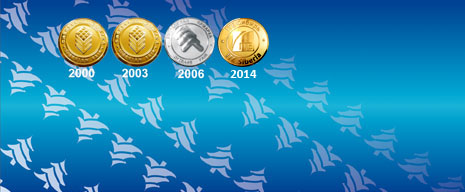 |
 |
From the history
Features of Immanuel Kant’s Philosophy of Education
While the article examines the features of the philosophy of education of the founder of German classical philosophy, philosopher and teacher Immanuel Kant (1724–1804), the study revealed that the significance of his philosophy of education is so multifaceted that it will require interdisciplinary analysis, leading to the following results. Firstly, it shows in what socio-political conditions the Kantian philosophy of education was formed and what influence the ideas of Enlightenment had on it.
Plato’s Objective Idealism and Philosophy of Education
The article examines the philosophy of education of the outstanding representative of Ancient Greece, philosopher and teacher Plato (5th century BC). We need its knowledge, firstly, to understand how the formation of philosophical and pedagogical thought took place in Ancient Greece; secondly, to find out which educational concepts Plato borrowed from his teacher Socrates, and which ones are novices of him.
Herbert Spencer’s Philosophy of Education Versus Darwinism
The article analyzes the philosophical and pedagogical concepts of the English scientist, philosopher and educator of XIX century, Herbert Spencer. His contribution to Western and Russian education lies in the fact that he took as a basis for the evolutionary theory of Charles Darwin «On the Survival of the Fittest Species», and for the first time in the history of pedagogical practice applied it to the education system called social Darwinism.
Development of Education at Irkutsk Destination in XVIII–XIX centuries: «Gradskaya School» and the Main State Public School
The article presents the information on the foundation and improvement of functioning the late 18th–early 19th centuries schools of Irkutsk («gradskaya» and the Main State Public School), the first general educational institutions of the capital of Eastern Siberia.
Stages of Teacher Training Education at Tyumen Destination
This study considers the main stages of the Tyumen Region teacher training education described from the Abolition of Serfdom in 1861, and presented nowadays. The range of sources is supposed to be wide enough, and represented by the following main groups, i.e. legislative acts, office documentation, statistics materials, periodicals in the resource database. The archival documents are analyzed at the Tyumen Region Fund of State Archive (GATO). The author presents the five main periods investigated as pre-institutional, institutional, university, reconstructing, and current Scholarship.
To the Question of the Contribution of Philosophical and Pedagogical Concepts of Friedrich Froebel in the System Education
The article deals with the philosophical and pedagogical concepts of the German philosopher-teacher of the late 18th and early 19th centuries Friedrich Froebel, whose merit to the Western European education system is expressed in the fact that he was one of the first to develop a methodology for the work of kindergartens in the upbringing and education of young children. The purpose of the research is to solve the following tasks through the prism of F. Froebel's philosophical and pedagogical concepts.
Novonikolaevsk Teachers’ Institute: Forgotten History (1 9 1 7 -1 9 2 0 )
The article discusses the issue of the emergence of the first teacher's institutes in Western Siberia in the pre-revolutionary years, shows the rivalry of Siberian cities for the right to open a teacher's institute in their city. The role of A. A. Manuilov, the Minister of Public Education of the first composition of the Provisional Government, is revealed. The names of the first group of teachers who worked at the Novo-Nikolaevsky Teachers' Institute and the names of students who have successfully completed their studies have been named. The biography of A. K.
Psychological Mechanisms of Intergenerational Communication through the History of the Agavelyan’s Family: In the Ways of the Unknown Pages of the «Normandie-Niemen» Air Regiment
The psychological determinants of the relationship among grandfathers, fathers, and grandchildren of veterans are substantiated. Various viewpoints on the connections within the relationship of these generations are characterized. The intergenerational connection influence on the life and aspirations of the descendants is described. The "Siberian trace" on "Normandie-Niemen" Air regiment is revealed. Documents and memories of the veterans are systematized.
The image of the teachers of the Siberian national schools
The study is dedicated to teachers of national schools that were created in Soviet Russia. The specific object of study was the teachers of Latgalian schools. Latgalian were recognized as an independent ethnos exclusively in the RSFSR (USSR). A significant number of immigrants from Eastern Latvia — Latgale lived in the territory of Western Siberia. It was here that they were given the opportunity to create national theaters and schools, to print literature and time editions in their native language.
Сайт поддерживается в Новосибирском институте повышения квалификации и переподготовки работников образования и является участником Новосибирской открытой образовательной сети